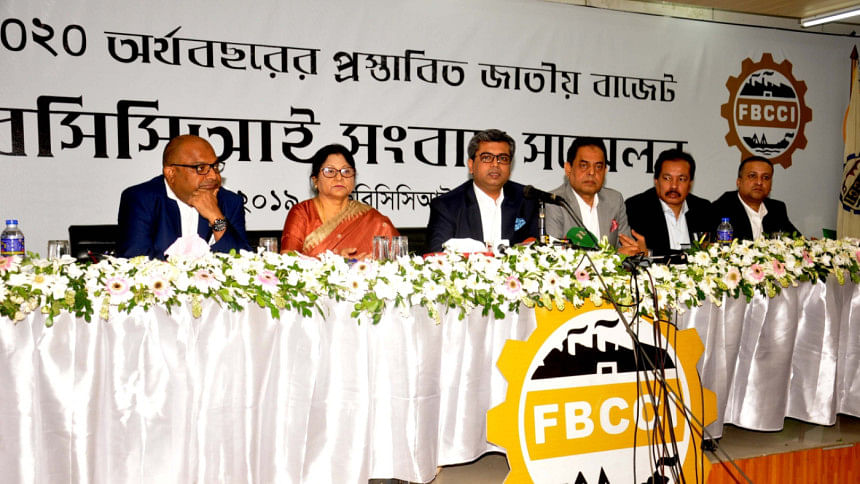Don’t borrow from banks for deficit financing

The Federation of Bangladesh Chambers of Commerce and Industry (FBCCI) yesterday urged the government to explore all sources other than banks to finance the budget deficit in the next fiscal year.
"Otherwise, the government's high volume of bank borrowing will deter cash flow to the private sector," said Sheikh Fazle Fahim, the newly elected president of the country's apex trade body.
He called for using various financial tools like infrastructure funds and bonds to fund the deficit financing.
He was attending a post-budget press conference in the FBCCI conference room in Dhaka.
The finance minister has proposed to borrow Tk 47,364 crore from the banking system to meet the budget deficit for 2019-20.
Terming the budget proposal popular and business-friendly, Fahim said micro, small and medium enterprises (MSMEs), meaning those with small incomes, should be kept out of the purview of value-added tax (VAT) so that they could grow further.
If the informal MSMEs can grow further and build a strong capital base, they could be brought to the formal economy and contribute more to the economy through employment generation and tax payments, he said.
The application of the new VAT law from the beginning of next fiscal year may turn troublesome and create scope for harassment of businesspeople as no one is familiar with it, said Fahim.
"So, the authorities should be careful while applying the law at the field level."
Fahim said the law's introduction would not create any distance between the FBCCI and the National Board of Revenue as both important organisations work through joint engagements.
Still, if any dispute arises for businesspeople, it can be resolved through consultations, he said.
He advocated for allowing undisclosed money to be invested in different productive sectors so that the ventures could also contribute to creating jobs for the youth.
Allowing the untaxed money to be invested will also stop capital flight from the country, enabling the informal economy to enter the formal one, he said.
Fahim appreciated the government's "special attention" and "high allocation" to areas such as social safety net, infrastructure, poverty reduction, education, health and agriculture.
Siddiqur Rahman, senior vice-president of the FBCCI, said businesspeople are terming the proposed budget business-friendly as many demands raised earlier have been addressed.
On the imposition of 1 percent source tax on export receipts, he said the rate was imposed in budget proposals every year and later adjusted through discussions with the government.
The rate was 1 percent in the outgoing budget proposal but it was later revised down to 0.25 percent, he said.

 For all latest news, follow The Daily Star's Google News channel.
For all latest news, follow The Daily Star's Google News channel. 



Comments